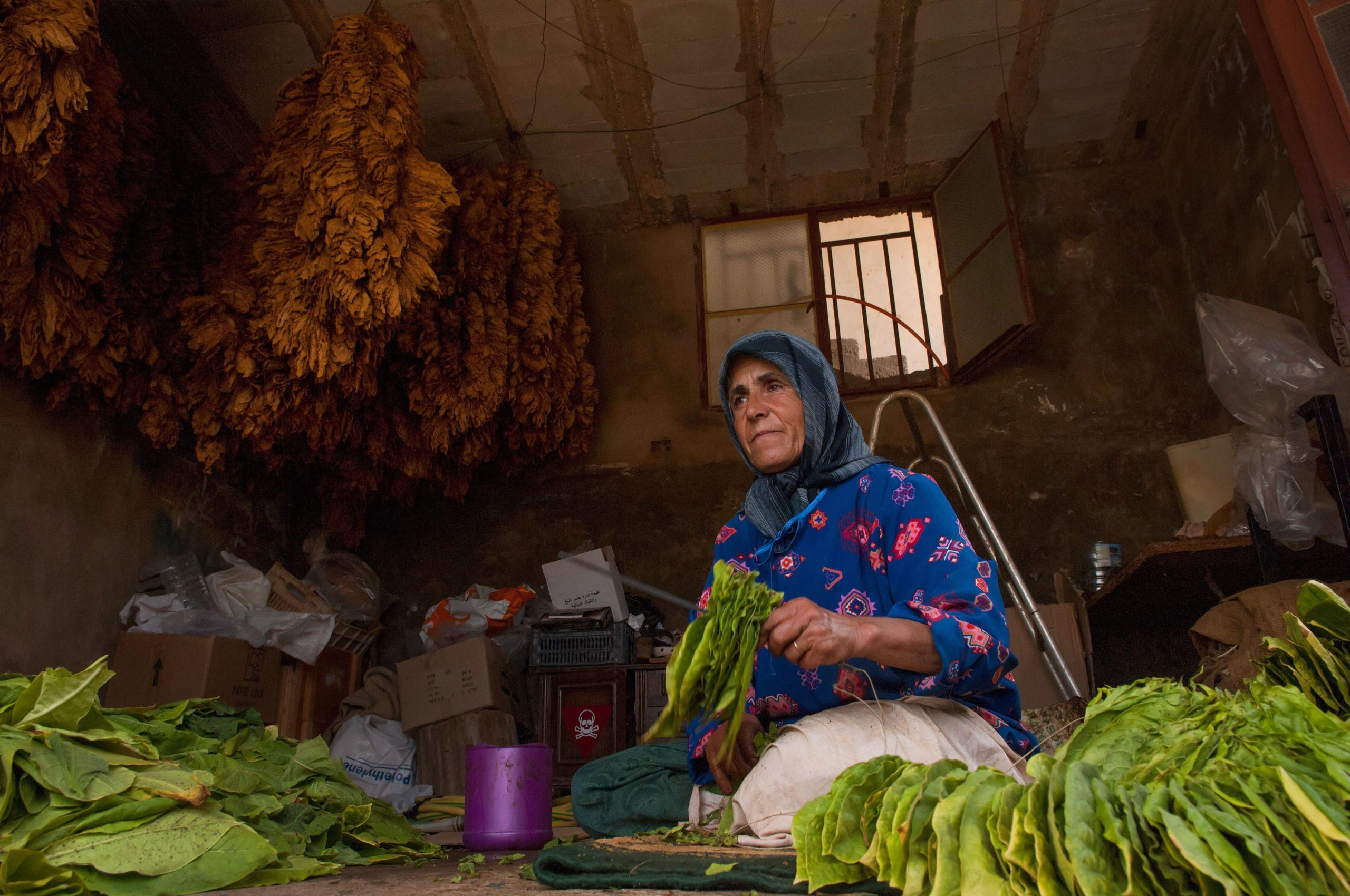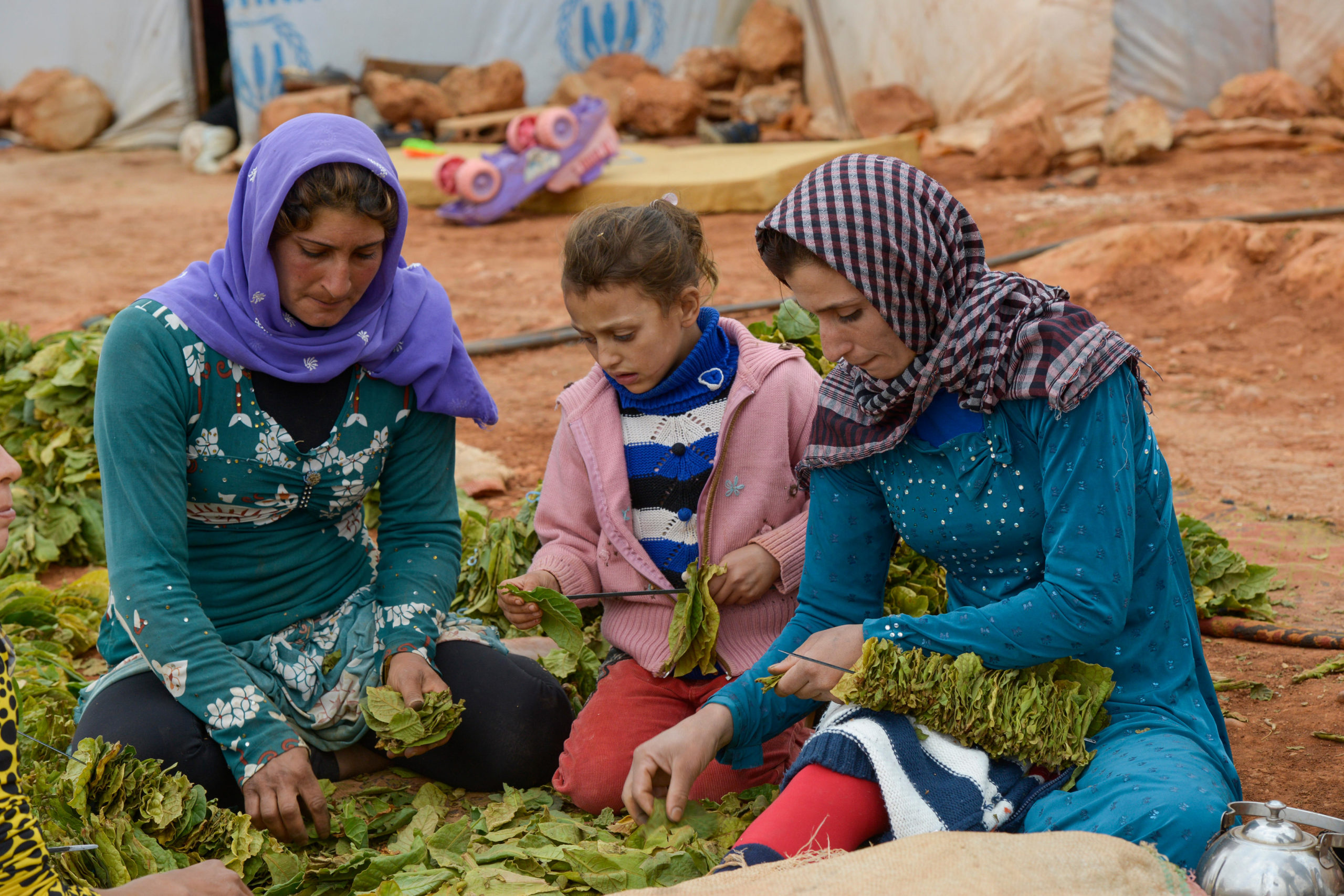This post is also available in: Français (French) العربية (Arabic)
By Rana Khoury
Back bent and with an empty look despite her angelic face, Layla (name changed to protect her identity) is a fifteen-year-old girl who seems to have experienced the unspeakable. She has been in this home for young girls who have fallen victims of sexual abuse for a whole year. A “secret” home where minors live to save their lives.
There are more than thirty girls who share common spaces and participate in various activities initiated by the organization that manages this center. They draw, they cook and benefit from a weekly psychological follow-up. Two of them carry a baby in their arms - children born of rape who will spend their first years in this home since their mothers will only be able to leave when the judge decides, or when they reach adulthood, which is the case of the majority.
There are several shelters that welcome women and girls who are victims of violence in Lebanon. Most often, they are managed by local feminist associations and financially supported by international organizations such as United Nations agencies. This reveals an almost total absence of the role of the Lebanese State in the protection of women.

In Lebanon, in the tobacco farming community, female workers are often exposed to sexual violence. These women and girls – many of whom are minors – are doubly abused: the first time when the abuser rapes them, and the second when their families sentence them to death to wash away the “source of shame”.
Working in the tobacco fields since she was eleven, Layla has precisely experienced this story in a village in southern Lebanon where the number of tobacco farmers is estimated at around 25,000, and where part of the workforce is composed of children between 9 and 15 years old. Layla’s family has therefore always spent their mornings in the tobacco plantations. Her mother and her three sisters lend themselves to exhausting work that is also very harmful to their health.
The tasks carried out in these tobacco farms consist of needling the tobacco leaves, harvesting them and transplanting the seedlings. The younger workforce is responsible for drying the leaves. Despite their hard work, women and girls try to keep their spirits high. They sing together and help each other in the most difficult times.
Affiliated with the Amal movement, the party of the head of the Lebanese Parliament who controls tobacco growing in Lebanon, they obtained their freedom in exchange for their loyalty to Amal
Tobacco companies depend on the raw materials they seek at the lowest possible price. This contributes to poor working conditions and poor wages for farm workers, almost half of whom are women. This repetitive work requires patience and time, but it is also often unpaid when it comes to children or young women, because, more often than not, the father of the family picks all their salaries.
Syrian refugee camps, such as Deir-el-Ahmar, provide another exploitable workforce. Women and children work as seasonal workers harvesting and drying tobacco.

Tobacco cultivation began during the reign of Prince Fakhreddine, and under their mandate, the French became aware of the importance of this sector in Lebanon and encouraged this cultivation in the remote countryside, especially in non-irrigated areas.
The economy magazine “Le Commerce du Levant” reported the following figures with regard to the tobacco industry in Lebanon, concerning the period preceding the economic crisis of 2019:
“The amount invested in the development of the tobacco industry since 2011 is 65 million dollars, including 25 million financed by multinationals and 40 million by the Régie Libanaise des tabacs et tombacs (Lebanese Tobacco and Tombacs Authority), the public establishment which holds the monopoly of the production and distribution of tobacco in Lebanon.”
This monopoly has been often criticized as being closely linked to political forces, and therefore highly corrupt. It is this collusion between politicians and operators that undoubtedly explains the impunity enjoyed by Layla’s attackers today. Affiliated with the Amal movement, the party of the head of the Lebanese Parliament who controls tobacco growing in Lebanon, they obtained their freedom in exchange for their loyalty to Amal.
Strongholds of corruption, it is therefore not surprising that tobacco farms are also open to all other kinds of abuses that go unpunished by the law. “There were three of them that morning,” says Layla. The young girl speaks to us of this nightmare with great difficulty, with a hoarse voice, but shy eyes, as if she had herself committed the atrocity of which she has been the victim.
They were three. They raped her one after another in that deserted field at five o’clock in the morning, threatening to kill her if she spoke. She did not want to say anything but she could not move. She was paralyzed, in a state of amazement. It was her mother who came to pick her up in the fields because school was about to start and she had still not returned home.
Not only was Layla not protected by her family, her father wanted to kill her to escape the shame. Thanks to her older sister, she was able to flee the same evening and surrender to the police. The investigating judge ordered her protection and placed her in a home for minors where she currently lives. She will not be able to leave before she is 18. But what matters is that she is alive.
The crime against Layla is no exception. Today, in Lebanon, 1 in 4 women is sexually assaulted. Another worrying figure: out of 10 women who have experienced violence, only 1 of them files a complaint.

In Lebanese patriarchal society, sexual assault is considered a punishment for the victims who are often made to feel guilty and ashamed. This harmful culture is at the root of the omnipresent injustice against women and their bodies. Helping victims of gender-based violence is all the more difficult in rural areas where very few feminist organizations are present and active on the ground. Thus women who go through this horrible experience often find themselves abandoned to their fate, to the laws of the family, the tribe and religious figures. They are almost all raped a second time: the day they are accused of the crime they have endured.























